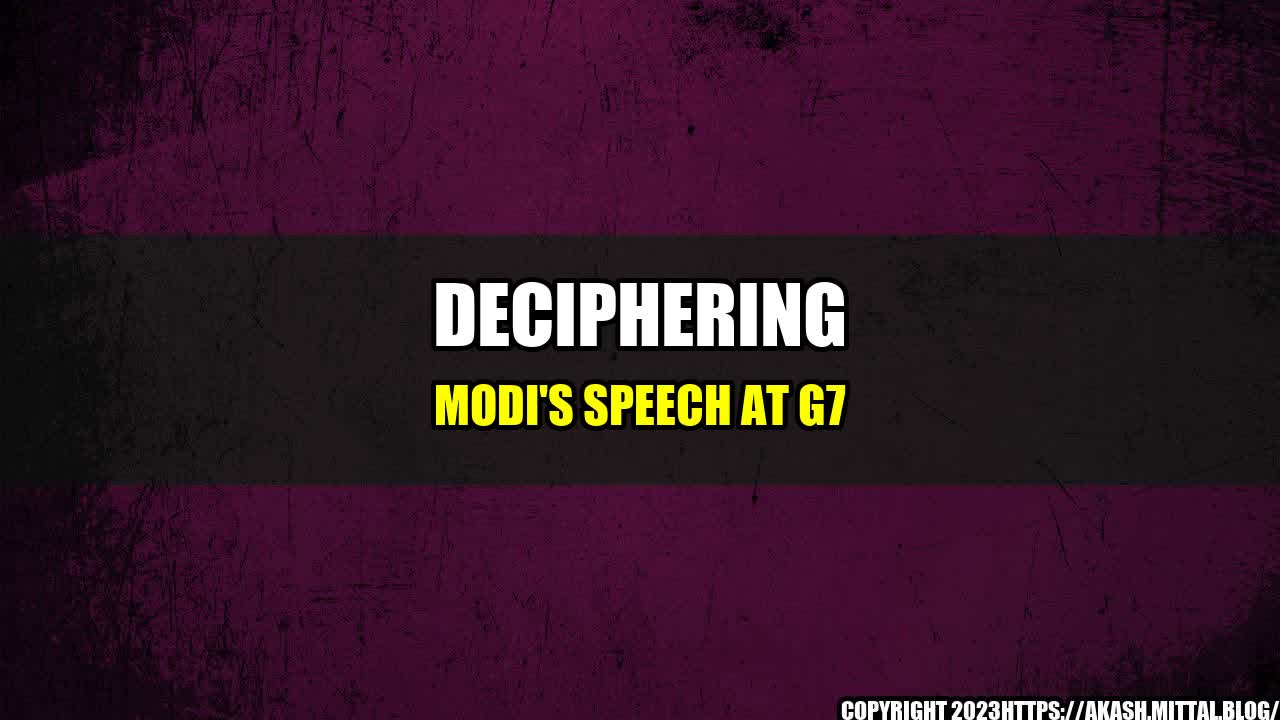If you're someone who doesn't pay much attention to world news, then you might not know who Narendra Modi is. He is currently the Prime Minister of India and a leader whose rise to power has been nothing short of meteoric. From being a humble tea seller to leading one of the world's largest democracies, Modi has come a long way.
But, what makes him stand out is not just his personal story, but also his unwavering commitment to development and growth. This was evident in his recent speech at the G7 summit, where he emphasized on the need for collective action to combat pressing global issues like climate change and the pandemic.
Modi's speech at G7 was not just a generic call to action, but a well-crafted plan that had some quantifiable examples to back it up. For instance, he highlighted India's ambitious target to achieve 450 GW renewable energy by 2030 as part of its Nationally Determined Contributions under the Paris Agreement. This is no mean feat, considering that India's renewable energy capacity is currently at about 100 GW.
He also spoke about India's commitment to vaccinating its entire adult population by December 2021, which he said would not only benefit India but also help other countries who are facing a shortage of vaccines.
These are just a few examples of how Modi's leadership has helped India to make significant strides in areas like renewable energy and healthcare. But, what makes his speech truly remarkable is his call to action for other world leaders to take similar initiatives.
From Words to Action
Modi's speech at G7 was not just a bunch of words, but a challenge to leaders all over the world to turn their words into action. He emphasized the need for collective action to combat pressing global issues like climate change and the pandemic. His message was clear - it's time to stop talking and start acting.
And, he didn't just stop at calling for action, but also provided practical tips on how to achieve it. For instance, he spoke about the need to tackle climate change by adopting a holistic approach that involves not just reducing emissions, but also increasing carbon sinks through sustainable forest management and promoting biodiversity.
He also spoke about the need to strengthen the global healthcare ecosystem by investing in research and development, enhancing access to affordable medicines, and building resilient healthcare systems that can withstand future pandemics.
Modi's call to action was not just for world leaders, but also for individuals and communities. He highlighted the role of youth in driving change and urged young people to use their creativity and innovation to find solutions to global challenges.
Conclusion
Modi's speech at G7 was not just a generic call to action, but a well-crafted plan that had some quantifiable examples to back it up. He challenged leaders all over the world to turn their words into action and provided practical tips on how to achieve it. His message was clear - it's time to stop talking and start acting.
In conclusion, Modi's leadership has helped India to make significant strides in areas like renewable energy and healthcare. His call to action at G7 is a testament to his unwavering commitment to development and growth, not just for India but for the world as a whole. It's time for all of us to take his message to heart and work towards creating a better future for ourselves and the generations to come.

Curated by Team Akash.Mittal.Blog
Share on Twitter Share on LinkedIn